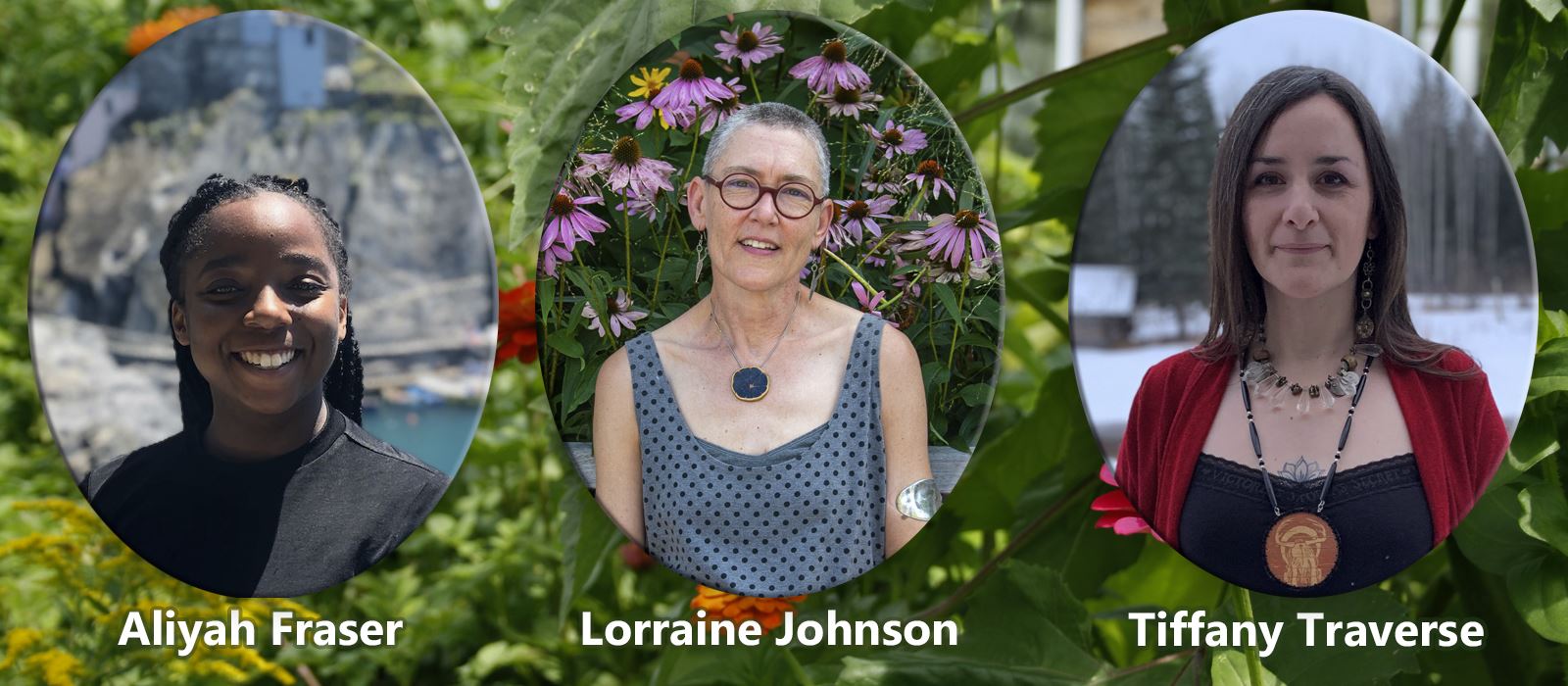February:
Cultural Values and how they Frame Horticultural Norms
A conversation with Aliyah Fraser, Lorraine Johnson and Tiffany Traverse Online via Zoom Thursday, February 11th, 2021 7:00 PM Eastern, 4:00 PM Pacific |
Whether it is which species or varieties of plants are on offer at nurseries, the types of services offered by landscaping businesses, the design components included in landscape plans, the guidance offered in books and TV shows, or municipal bylaws defining what a ‘properly’ cared for urban land is supposed to look like, cultural expectations and values, mostly drawn from Europe and the UK, frequently shape what is seen as 'normal' and 'best practice' in urban green space.
Widely accepted ideas around property ownership and rights of owners to do whatever they/we please to ‘our land’ are rooted in cultural beliefs that mostly exclude land and non-human rights from decision-making processes.
Language around gardening also, subtly or overtly, shapes our relationship and expectations of the land and life we coexist with. Property, maintenance, the use or function of a space, whether we describe a plant as being well behaved or invasive, or define the value of a plant or a garden practice based purely on its yield, are just a few of the ways that language shapes and reinforces a dominant/colonial and frequently extractive version of human relationship with land plants and ecosystems.
This panel discussion will highlight and explore things that are often taken for granted within horticultural and community green spaces and offer some alternative ways of seeing and being in relationship with the land, plants and other life that shares space with us.
Recording of session opening and
Excerpt of Aliyah's Presentation
Aliyah Fraser is an urban planner and soon-to-be farmer currently living in Kitchener, Ontario. She graduated from the University of Waterloo’s Faculty of Environment with an undergraduate degree in Planning and afterwards worked as a private land development planner for a year and a half. She is a creative and critical thinker who has always had a passion for growing, cooking, eating and thinking about food. This year she is starting Lucky Bug Farm, a small-scale market garden that is set on growing a just and sustainable food system.
Recording of Lorraine's presentation
Lorraine Johnson is the author and/or editor of 15 books, many of which address environmental issues, with a particular focus on native plant habitat protection/cultivation, urban agriculture, and the intersections of land care and justice. Some of her current projects include presenting her talk Unsettling the Garden: How native plants connect with reconciliation and healing the land; a non indigenous perspective, advocating for the revision of property standards bylaws that too often penalize the efforts of urban gardeners to support native life and co-authoring (with Dr. Sheila Colla), A Flower Patch for the Rusty-Patched Bumblebee, a guide for establishing a native bee friendly garden (available as a free download at foecanada.org/bee-garden-guide ).
Tiffany Traverse of Fourth Sister Farm, is a Secwépemc/Swiss Italian farmer, land and seed steward, language learner, and food sovereignty advocate. Her passion for feeding people and firm belief in the right to healthy, culturally-appropriate foods for all, drives her work. She is excited about dismantling structural racism in institutions and conducting experimental plant breeding projects to adapt nutrient-dense cultivars to our changing climate. As a guest in Treaty 8 territory, Tiffany participates in variety trials through CANOVI and Seed Savers Exchange, and ongoing Indigenous seed grow-outs, including a rare collection under the mentorship of Métis Seedkeeper Caroline Chartrand. As a volunteer Advisory Council member with the Community Seed Network and new Board Member at SeedChange, her hope is to create better access to resources and increase our collective seed and food security and sovereignty.
Recording of Panel Discussion and
Question and Answer session

